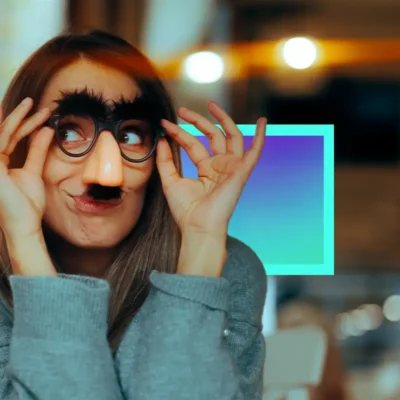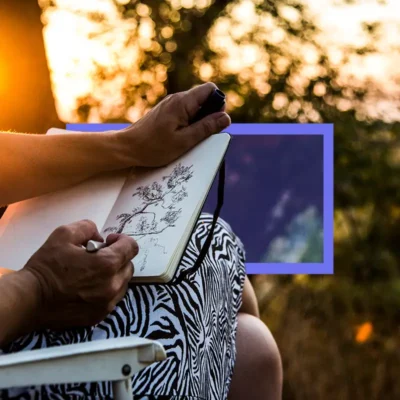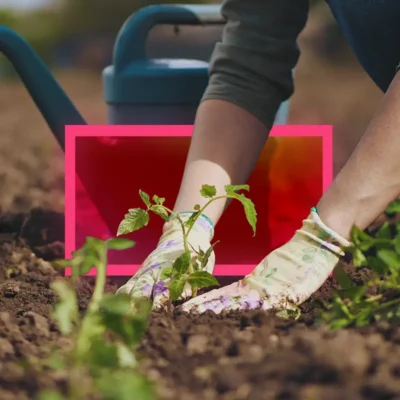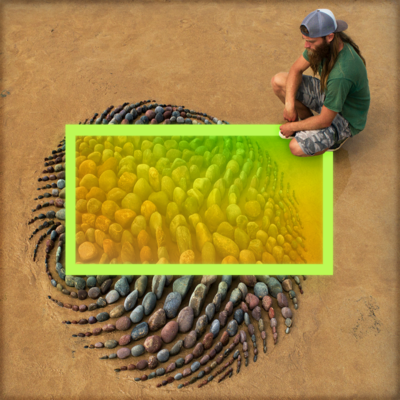The power of play
Celebrity chef Carla Hall wasn’t always interested in cooking. As a child, she finds that puzzles and play help her to discover her true character. When she falls upon a hard time, she instinctively turns to memories of her grandmother’s kitchen for comfort. In this episode of Meditative Story, Carla shares how sensory play finally allows her to solve her biggest puzzle yet — herself.
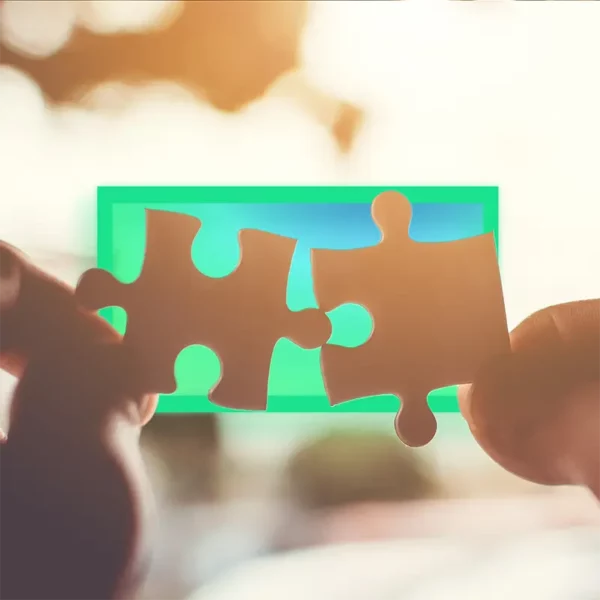
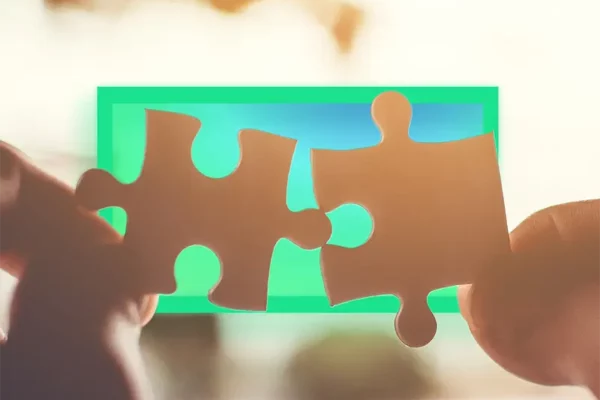
Table of Contents:
Transcript:
The power of play
CARLA HALL: The idea of standing out, of having everyone stare at me, is terrifying. But I choose to say “yes.” Running across the stage in a wig, speaking in an outrageous accent, free to experiment, I discover a piece of myself I didn’t know was missing.
ROHAN GUNATILLAKE: Celebrity chef Carla Hall wasn’t actually always interested in cooking. As a child, she finds that it’s puzzles and play that most help her to discover her true character. It’s when she falls upon a hard time, she instinctively turns to memories of her grandmother’s kitchen for comfort. In this episode of Meditative Story, Carla shares how sensory play finally allows her to solve her biggest puzzle yet — herself.
In this series, we combine immersive first-person stories, breathtaking music, and mindfulness prompts so that we may see our lives reflected back to us in other people’s stories. And that can lead to improvements in our own inner lives.
From WaitWhat, this is Meditative Story. I’m Rohan, and I’ll be your guide.
The body relaxed. The body breathing. Your senses open. Your mind open. Meeting the world.
HALL: I sit in the back of my 4th grade classroom in Nashville, Tennessee. Two bulletin boards decorated with brightly colored cutouts hang on the walls. My best friend, Aurelia, and I are all smiles from behind our wooden desks. I have a glow in my eyes. I love to make people laugh. We’ve been secretly learning sign language, so we can talk during class without our teacher knowing. I work my fingers into fast configurations. My elbows start jumping around as I sign the letters. I’m getting good at it. It’s like a puzzle. I enjoy finding the patterns and seeing how they can fit together. I love games and puzzles; solving them helps me make order out of things. My older sister, Kim, and I love the routine of playing the same games over and over. It excites me to think about the clink of the marbles in Chinese checkers, the loud Pop-o-matic spinner on the game board, Trouble. Or, how I delicately use the tweezers in a game of Operation. Even when I’m sitting still, my mind is always going. Now Aurelia’s eyes grow wide, her eyebrows wiggle. She’s trying to keep up with what I’m saying. My fingers keep crashing into each other! We both start to giggle.
Ms. Avery peers around and stares at me. She has thick black hair with bouncy curls, and her blouse is tucked into a proper skirt. She gets up and draws a big square on the blackboard.
“Carla Hall,” she says. “You come stand here because apparently, you are the laughing box.” I get up, slowly. I feel everyone’s eyes on me. Being shamed in front of the class feels like a punch in the gut.
I’m not very confident. Ms. Avery asks questions often about dates, people, places. I can’t remember them all. I’m afraid I’ll get the answers wrong. So I stop raising my hand. This becomes my pattern.
I’m doing everything I can to not cry in front of everyone. Even though I’ve known most of the kids in my class since kindergarten, I’m shy, and having everyone’s attention on me is excruciating. Crying will just make things worse. Standing in front of the chalk outline drawn for me on the blackboard, I feel like a misfit.
The guest room at Granny’s house feels big and grand. Thick heavy curtains hang around the windows. A burgundy colored heavy, brocade bedspread covers the dark, mahogany frame. My sister and I are convinced there are ghosts in here, but we still find the courage to play. I use all of my strength to creak open the cedar chest at the foot of the bed, knowing it’s full of treasure.
We squeal as we pull out old church hats, long satin gloves, and a vintage reddish brown lizard skin purse. In the closet we find Granny’s coats, her mink stoles. The pungent odor of mothballs doesn’t stop us. I grab a stole with a fox tail dangling on the end along with a pair of high heels that are way too big for my little feet.
I raise my chin extravagantly in the air. “Well, Dearie, where shall we go today?” This game is called Dearie, one of a dozen games we love at Granny’s. Here, our fun is limitless.
As we walk down the long hallway, decked out as posh 1940’s ladies, the house smells wonderful. Granny’s food has been simmering for hours.
She sees us across the kitchen island, our big shoes clunking against the linoleum floor, and she’s laughing. “Dearie, what time will dinner be served this evening?” I ask. Granny lifts the lid of the shallow skillet on the back burner to reveal pork chops smothered in onions and gravy. Beside the stove sits piles of golden brown, hot water cornbread nuggets. A mix of collard, turnip and mustard greens cook in a pot. And her signature five flavor pound cake is perched on a cake stand. Granny sings back: “Dinner’s ready in five, Dearie.”
Here, I can never be too silly. I make worlds up that I play in. And Granny makes my playing feel normal.
At school I hear, “be quiet, quit laughing, don’t move.” Everything feels like a “NO.” But Granny nourishes me with her food and her wisdom. She understands the constraints of being a girl in the South in the 1970s. She understands how I buckle against that. “It’s your job to be happy, not to be rich,” she says. I never feel judged for wanting to play. At Granny’s, everything feels like a “YES.”
GUNATILLAKE: In a way, saying yes — acknowledging that something is happening and giving it attention — is the heart of mindfulness. What is happening in your experience right now that you can say yes to? And in your wider life, where could you say yes just that little bit more?
HALL: When I’m 12, I say yes to summer theater camp in Sewanee, a woodsy part in East Tennessee. The cabins smell like pine. Our first morning session takes place in a big converted barn with a wood floor that resembles a black box theater. There’s stadium seating around the edges.
Our teacher is a big bald guy with a bushy beard, beautiful dark skin, and a big friendly grin. He welcomes us and runs over to the piano and starts playing with a big flourish. He belts out the lyrics of the song: “On Broadway.” I’ve never heard of it before. It fills me with energy and excitement.
It reminds me of a few months back: I see my uncle on stage in the musical revue, Bubbling Brown Sugar. After we watch the show, mom’s never seen me so animated. She signs me up for theater classes in town. I love them.
Now at camp, we practice our craft. The teacher wants us to learn to feel comfortable expressing ourselves, even if it feels weird. “Dare to be different! Dare to be you!” Hearing this, something in me unlocks. In this space, like at Granny’s, I have permission to say “yes.”
At school, the girls in my class are loud, confident, lady-like, or sporty. I’m none of these. I’m lanky. I’m long. I feel like I’m not supposed to take up much space.
The idea of standing out, of having everyone stare at me, is terrifying. But here, in this wide, open barn I choose to say “yes.” Running across the stage in a wig, speaking in an outrageous accent, free to experiment, I discover a piece of myself I didn’t know was missing. Whenever I’m uncomfortable, I now know I can become somebody else. Here in the barn, I feel smart and seen and proud.
I come home thinking, “You can call me weird. That’s fine.”
It’s a chilly fall day in Washington DC. I’m 26. I reach for my favorite coat, because when your life is falling apart, sometimes you just need to wear something you love. This particular coat is long and dramatic. It’s khaki green with a high Mandarin black collar. I sit in the backseat of my boyfriend’s car, only I’m pretty sure he’s not my boyfriend anymore. I just found out, my friend from out of town, who was supposed to be here visiting me, spent the night with my boyfriend instead. My boyfriend of 3 years. My southern hospitality firmly plants the belief that my guest is my responsibility. So now we’re in this awkward, miserable situation with all three of us driving to the train station. I’m trying to hold it together as I watch them kiss each other goodbye. I can’t believe any of this is happening.
My boyfriend drops me at home without ceremony. I climb out on 15th Street NW, and he practically zooms off before I can pull my coat out of the car door. This is how our relationship ends.
I barely get inside my door before my emotions explode. I let out giant sobs, the kind you see on daytime television. I have never experienced betrayal like this. On top of that I also thought until recently that I would be an accountant. And mama’s now afraid I’m not living up to my potential. Nothing seems to be working out. I cry for hours until there are no more tears. I’m exhausted.
When I can’t control what’s happening in my life, l know I can always find some order with a puzzle. The puzzle of my life defies pure logic or spatial recognition. It’s hard for me to see what I need when everything feels like a jumbled mess.
GUNATILLAKE: Sometimes life is jumbled and messy with few, if any, clean edges. It’s also true that if there is any order, our mind tends to ignore it and focus on the messiness. Is that true for you? What aspects of order and tidiness can you appreciate in your life, despite everything else around it?
HALL: I decide to give myself a year. Not a year of regret, not a year of sadness, but a year of play. I decide to say “yes” just like I did when I started theater. Just like I did playing at Granny’s. I realize how much I enjoy creating with my hands. I knit. I craft paper mache and origami. I make friendship bracelets. I draw.
But what I most long to create is food. Comfort food. Southern food.
I think about Granny and the warmth and love she cultivated in the kitchen. I don’t know much about how to cook, but I know how to read cookbooks. And really, recipes are just like puzzles. Turning ingredients into a finished dish is the ultimate brain teaser. So for the first time in my life, I say yes to cooking, real cooking — not just survival cooking.
I experiment making fruit salads with golden sweet pineapple and chunks of watermelon, calzones with fresh vegetables, savory ricotta with parmesan cheese and nutmeg, and spaghetti with a chunky tomato sauce the way mama made it. I cook out of gratitude to my friends. I cook to pass the time. I cook to figure out the puzzle.
One afternoon I offer to take leftovers from the food I made for my sister’s baby shower to my friend Patrice. It’s a typical doctor’s office: a waiting room with a few seats, artificial plants and magazines on the side tables. I show up with the food in a beautiful picnic basket. Catching me completely off guard, Patrice introduces me to her co-workers as having a lunch delivery business. They tried the food, and they want me to come back!
They’ll pay for it. So the next day, I do. And the day after. Pretty soon I’m running my own lunch-catering business, and everything I thought my life was supposed to be up to that point is thrown out the window. I have bills to pay and work around the clock. But I still keep saying yes. I keep playing. I keep puzzling. I start to forget where my pain ends and the food begins.
The kitchen in my fourth floor walk up on 15th Street smells like chicken. I cook two huge birds. When they cool, I take off the skin. I pick the meat, and I take all the little gristly things out. It’s physical work. As the morning light slants in through the small window, I make curry mayonnaise. I fold in red grapes, raisins, and crisp granny smith apples, never peeled. The colors blend together to create a bright mosaic. My curry chicken salad has become one of my most popular dishes.
I’m drawn to recipes I know from Tennessee, like Granny’s signature five-flavor pound cake. So I begin to play with loaves of pound cake. And then other quick breads. Banana bread. Lemon Blueberry bread. Pumpkin pecan bread. Apple spice bread. I’m drawn to recreating my fondest memories of being around my friends and family, through food.
When the life we thought we want collapses, it’s natural to turn back to childhood as we try to remember who we really are. Food takes me straight there. Back to Granny’s table. Each recipe presents a new clue. A new memory I’m trying to piece together from back home. What did it taste like? What did it look like? How did people respond to it? What made it feel magical?
My food delivery business starts with one office, but quickly turns into 25. They’re part of my community. One of them is a neighborhood social services organization. I show up at their office wearing a black t-shirt, dark blue jeans, and a giant smile. “How’s everybody doing today?” I say. All of a sudden everyone’s trying to peek into the baskets to see what’s available. “I remembered to keep the cilantro out of yours!” I tell Dorothy Dixon, a tall elegant woman with brightly colored lips and style for days. I bring her a special chicken salad with honey mustard vinaigrette. She looks like I’ve made her day. So many of my customers do. It feels very personal.
I still love to make people laugh, to bring them joy. And now food is the language I use to make that happen. To connect with other people. To make them feel seen and accepted.
But this is fun for me too. I’m getting to play every day, with new recipes, new techniques. I’m remembering how good it feels to experiment with who I really am and what I love. When I see people, they appear like a puzzle to me. I always see their potential order. In providing them exactly what they need at this moment, I’m helping them fit in that missing piece they didn’t even know they needed. But I’m also filling in a missing piece of myself. My jumbled up mess starts to look like a complete picture again. My year of play sets me on a path that I will follow for the rest of my life.
Over the next 30 years, I’ll return to play again and again. Any time my heart gets broken, a dream falls apart, or I feel lost and unsure of what I need at that moment, I remember the lessons that began in Granny’s house.
I push myself to say “Yes,” to embrace my freedom, my instincts, and my spontaneity. Because I know that through play, I’ll eventually find the missing pieces of myself.
Back in my friend’s office, I place the heavy bassinet on the front desk. Today, I have everything wrapped in some large yellow tea towels. With everyone watching, I grin. I slowly unveil the layered towels. It’s a big reveal. Everyone’s excited. We laugh. It feels like a game.
Rohan’s closing meditation
GUNATILLAKE: Thank you Carla.
Saying yes more is something I very much recognize from my own life and something I’ve had to work on a fair bit. As a relative introvert, my instinct when faced with an opportunity is often to say “Nah it’s ok, I’ll just hang out here.” But I recognized that doing that closed off opportunities to grow and fill in the missing pieces in the puzzle of my life. So while my introverted, no thanks response is still there, I’ve learnt — largely thanks to the wise coaching of my wife Lucy — to ride it out and say yes anyway.
I also loved what Carla has to say about saying yes, about playfulness and her connection with food, and so how about we do a meditation inspired by those themes?
And we’ll start with yes. There are a few different ways to do a yes meditation, but this is a favorite of mine.
Let the body be soft and open. I like to take a big long outbreath, letting it all out when starting a practice. Giving ourselves permission to let go of any holding or tension or stories that might be in the body.
Ahhhhhhhhh.
And whatever position, whatever posture your body is in, it’s okay. There is no perfect way for our bodies to be in meditation. No perfect mindstate that we’re aiming for. Instead, we train our attention, our awareness to be more yes.
Training the mind to know what is arising within it, yes. Not pushing it away, yes. Not holding onto it for fear of it going away, yes. But knowing what is happening and saying yes.
Thoughts, physical sensations, sounds, feelings, commentary, judgments, yes.
The yes mind is one that leans forward but is also comfortable, yes.
Bright, aware, interested, open, yes.
Allowing and acknowledging what is happening, not closing itself off, yes.
Yessing the pleasant, yessing the unpleasant, yessing that which is neither pleasant nor unpleasant — yes.
Saying yes to everything in the same way.
Yes. Yes. Yes.
Now we’ve cultivated the yes mind, let’s take up Carla’s invitation to playfulness and play a little meditation game. It’s called: what’s next?
And staying relaxed and open bright, all we’re going to do is notice what our next thought is, watching it appear. Laying in wait for it, like a tiger in the undergrowth. And when the next thought wanders in, to know it.
And when we know it, no need to get caught up in it or spin a story about why it’s where. Instead to drop back into openness and play another round. Lying in wait, ready to catch the next thought.
Doing this for a short while. Playing catch, and if possible, noticing what the mind is like when it is playing like this. Playing catch with your thoughts.
To close, let’s think about food.
When Carla starts her culinary adventures, she goes back to Granny. Remembering the dishes from her Grandmother’s kitchen and how they were an expression of love and positive feeling.
So, is there a dish, a food, a meal that has a charge like that for you from your childhood? Food wrapped up in meaning, and stories. A dish or memory of cooking that has a special place in your heart.
For me it’s string hoppers and fish simmered in coconut milk. What is it for you? Bring it to mind. Taste it in your memory, with your memory.
And following its clues, reflecting on the positive qualities that it evokes for you. Whatever they are, make the intention to express those qualities in our week ahead.
Thank you Carla.
And as ever, thank you. Eat well.
We’d love to hear your personal reflections from Carla’s episode. You can find us on all your social media platforms through our handle: @meditativestory. Or you can email us at: [email protected].


